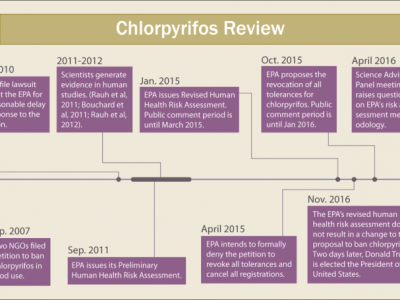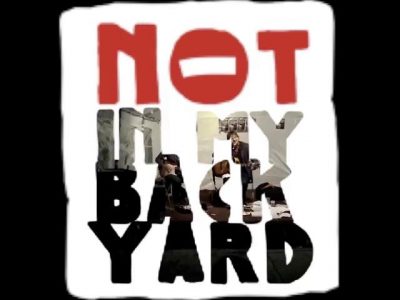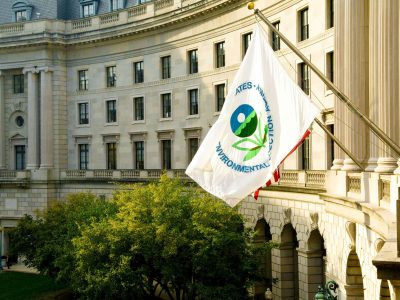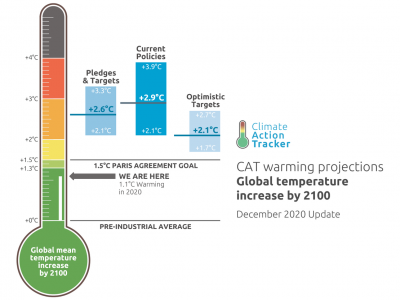Environmental Science
Another Historic Climate Court Ruling in the Netherlands
A court orders Shell to cut its emissions, including of its consumers. But will this stand after appeal?
In recent years, The Netherlands has become the leading site of climate change litigation. Contrary to expectations (including my own!), its district, appellate, and supreme courts decided in favor of Urgenda, an upstart environmental organization, ordering the government to more aggressively reduce greenhouse gas emissions. Now the same district court has gone further, again in favor of environmental groups …
Continue reading “Another Historic Climate Court Ruling in the Netherlands”
CONTINUE READINGThe Ninth Circuit Makes EPA an Offer It Can’t Refuse
Regulate chlorpyrifos or else!
Chlorpyrifos is one of the most widely used pesticides in America, although it has been banned in the EU. Last week, the Ninth Circuit took the extraordinary step of ordering EPA pointblank to ban or reduce traces of chlorpyrifos in food. A dissenter accused the majority of misreading the statute in question and abusing its …
Continue reading “The Ninth Circuit Makes EPA an Offer It Can’t Refuse”
CONTINUE READINGWhen “Stay In Your Lane” Is Wrong
Technical policy questions often involve ethical political questions that the public must have a say in
As vaccination for the coronavirus in the United States ramps up, I want to take a look back to a policy dispute over the initial plans for vaccine distribution at the end of 2020 and the beginning of 2021 – in part because that fight (like “follow the science,” which I blogged about recently) also …
Continue reading “When “Stay In Your Lane” Is Wrong”
CONTINUE READING“NIABYs” Obstruct Important Climate Change Research
Some activists say “not in my backyard,” but strident opponents of solar geoengineering argue “not in anyone’s backyard.”
A peculiar type of activism is manifesting with regard to solar geoengineering. This proposed set of technologies to reduce climate change has been subject to only a few outdoor experiments. One has been in the pipeline for almost a decade: The Stratospheric Controlled Perturbation Experiment (SCoPEx) would involve the launch of a balloon into the …
Continue reading ““NIABYs” Obstruct Important Climate Change Research”
CONTINUE READINGExpertise versus Politics Under Biden
Experts will no longer be pariahs under Biden. But will their voices be heard?
One of the abiding issues in governance is the balance between democratic leadership and experts. We don’t want government solely by technocrats. Nor do we want government steered solely by ideology and politics, as under Trump. Biden will be a vast improvement, but there’s still some question about whether he’ll get the balance right. I …
Continue reading “Expertise versus Politics Under Biden”
CONTINUE READINGWe Cannot Keep Global Warming within 1.5°C without Geoengineering
A new report from German green left groups heroically try do so, but fail
I emphasize the importance of carbon dioxide removal (CDR) technologies and solar geoengineering research because keeping global warming within the internationally agreed-upon 2°C goal through reducing greenhouse gas emissions alone is extremely difficult, and limiting it to the 1.5°C aspirational target is now essentially impossible. All options to reduce climate change that are consistent with …
Continue reading “We Cannot Keep Global Warming within 1.5°C without Geoengineering”
CONTINUE READINGRestoring Agency Norms
It’s not just the White House. We also have to repair the way agencies operate.
Donald Trump prided himself on his contempt for established norms of presidential action. Whole books have been written about how to restore those norms. Something similar also happened deeper down in the government, out in the agencies like EPA that do the actual work of governance. Trump appointees have corrupted agencies and trashed the norms …
Continue reading “Restoring Agency Norms”
CONTINUE READINGIs the Paris Agreement’s Ambitious 1.5°C within Striking Distance?
A new analysis highlights the dangerous seduction of long-term targets
A new briefing (and PDF) from Climate Action Tracker opens with, “The recent wave of net zero targets has put the Paris Agreement’s 1.5°C within striking distance.” Big, if true. But is it? In the 2015 Paris Agreement on climate change, countries agreed to keep global warming within 2°C and to “pursu[e] efforts” to keep …
Continue reading “Is the Paris Agreement’s Ambitious 1.5°C within Striking Distance?”
CONTINUE READINGEngineering Biological Diversity
In a new paper, I introduce the international governance of synthetic biology, gene drives, and de-extinction for conservation.
In addition to climate change — the primary topic of my academic writing — biodiversity loss is the other major global environmental challenge. Like climate change, efforts over the last three decades keep failing to meet agreed-upon objectives. And like climate change, scientists and others are considering novel technologies that would intervene in natural systems …
Continue reading “Engineering Biological Diversity”
CONTINUE READINGTrump’s Biggest Anti-Environmental Fail
He did his best to destroy EPA completely. But his devastating budget proposals got nowhere.
Trump was awful for the environment. But he wanted to be even worse. If Trump had had his way, only shreds of key environmental agencies would now be left. Although Trump has certainly succeeded in weakening them, the cores of the agencies remain intact. Without them, Biden’s task would be much harder. Trump’s budgets unvaryingly …
Continue reading “Trump’s Biggest Anti-Environmental Fail”
CONTINUE READING












